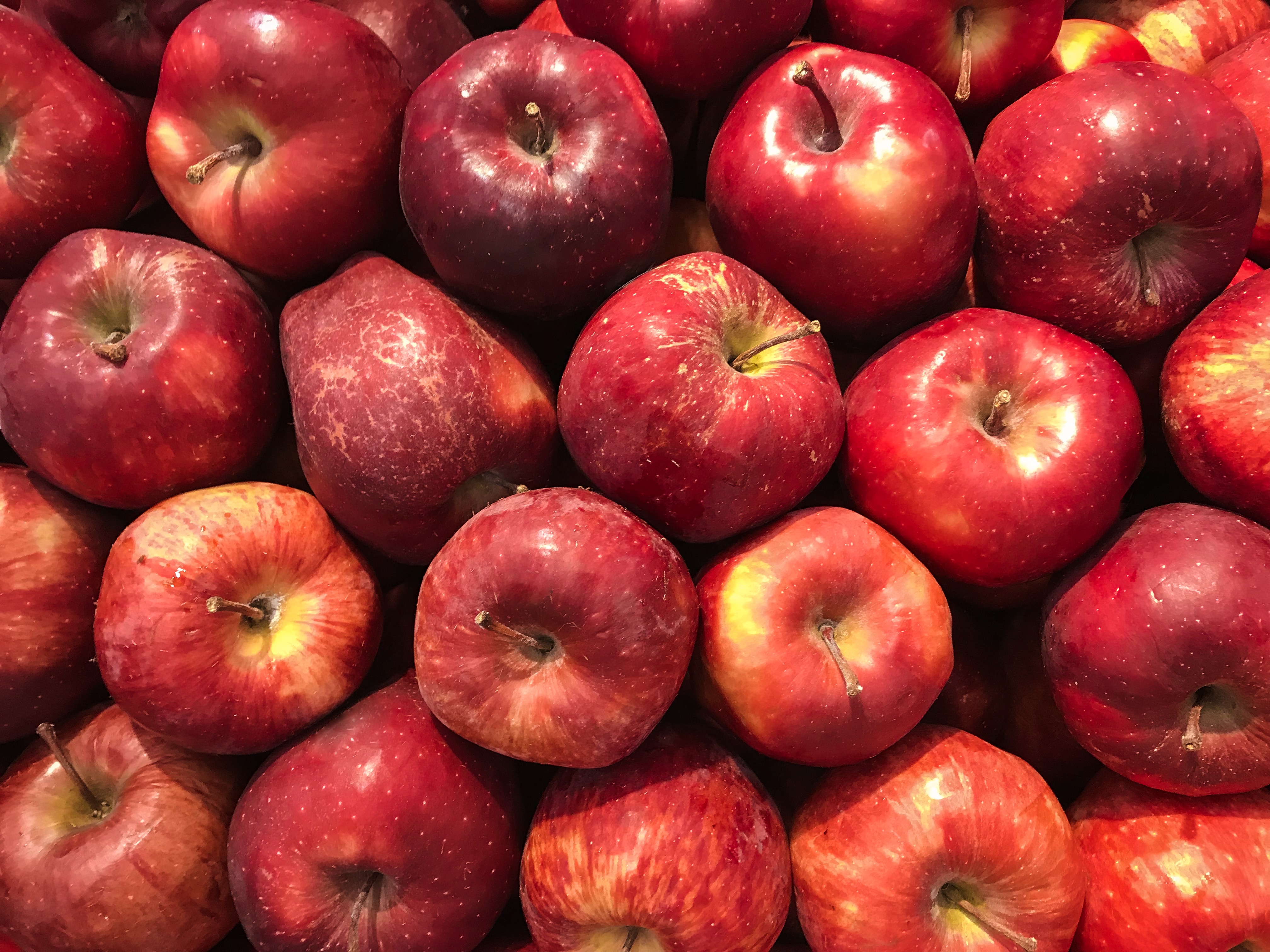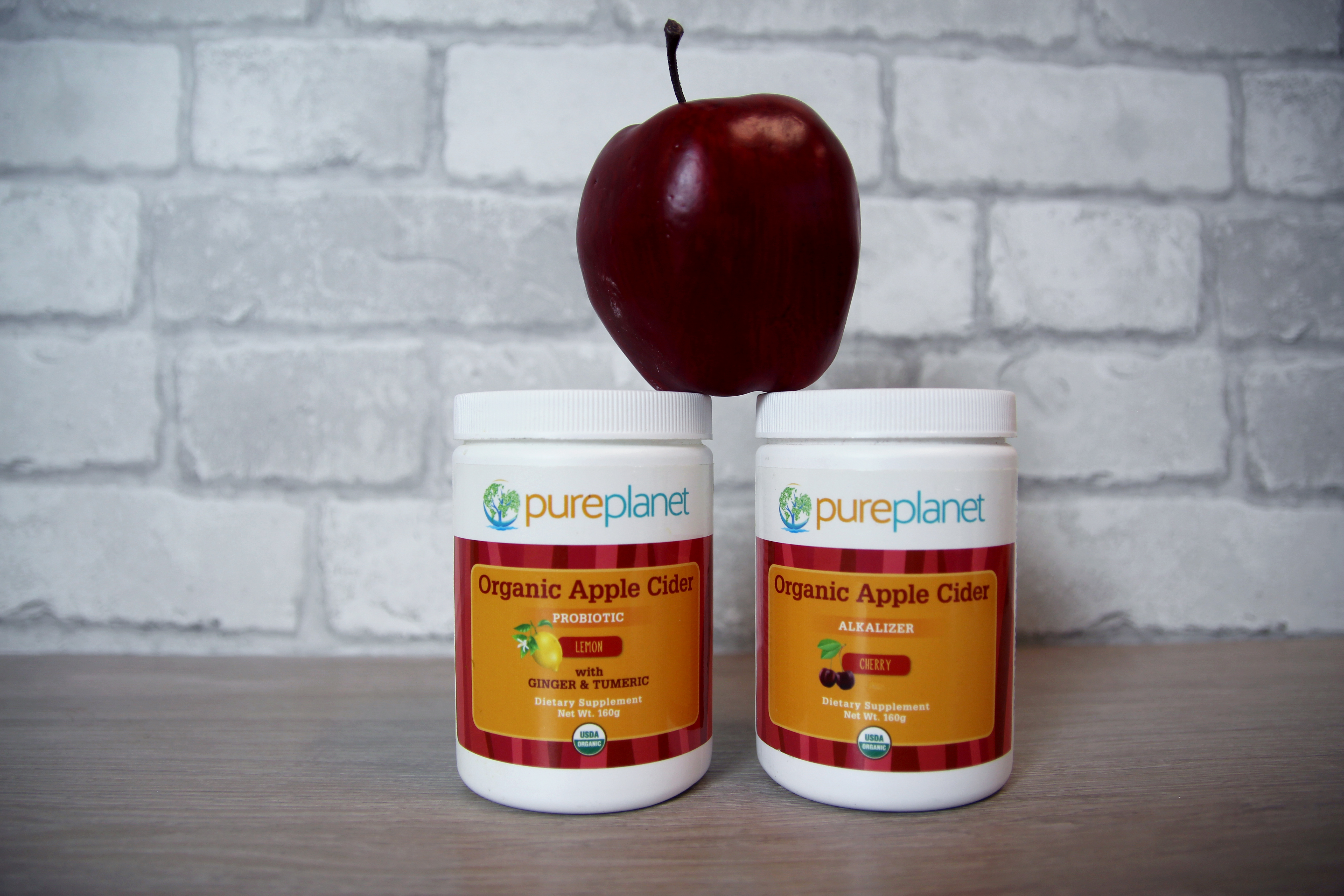Apple cider vinegar (ACV) may taste bitter, but the benefits of drinking this elixir are pretty sweet! From digestive support with probiotics to alkalizing acetic acid, nutritionists LOVE this natural remedy’s ability to promote health.
But did you know this tonic can help you shed some pounds while encouraging your heart health too? Here are some more benefits of this beloved superfood drink.

Apple Cider Vinegar Benefits
Weight Loss Support
Keeping You Full
Looking to lose weight? Sipping on some cider could help you reach your goal. Unfortunately, taking a swig does not magically shrink your waist, but adding it to your routine can boost your results.
Here’s the gist: the acid in apple cider vinegar may help you feel full for longer, thus making you less likely to overeat. And that’s not just based on anecdotal experience, it’s backed by science!
Researchers at Swedish college Lund University studied how acetic acid could help affect the glycemic index of bread, paying special attention to insulin levels and fullness. (1) Published in The European Journal of Clinical Nutrition, the investigative study focused on 12 healthy volunteers.
What were the results?
Volunteers felt fuller when they consumed the vinegar before eating their carb-packed meal. Plus, the acid helped balance blood glucose and insulin levels. But we’ll get to that benefit a little later.
Researchers at the Arizona State University took their own exploration on satiety a bit further–they quantified just how many calories you may be able to save by ingesting apple cider vinegar before you eat. (2)
So, what they find?
With increased fullness, participants ended up saving 200-275 calories when eating a carb-loaded meal. It may not sound like a lot, but if you add these numbers up daily, they could lead to an easy way to shed some lbs.
But ACV does more than just help you feel full–it may also help you reduce body fat too.
Fat-loss Support
We just have to get this out the way: YAAAS! Okay, cool, let’s talk. Losing stubborn body fat is a a true plight of mankind, so we LOVE hearing that this sour liquid can help.
One study published in Bioscience, Biotechnology and Biochemistry found that the acetic acid present in vinegar may help keep body fat accumulation down. (3)
Japanese researchers focused on obese individuals, supplementing them with daily ACV for 12 weeks. This placebo-controlled, double-blind study found that participants who drank the vinegar enjoyed “significantly” lower body weight and visceral fat when compared to those who did ingest the tart drink.
That’s good news! Along with greens, like spirulina, this vinegar is a must-have in your weight loss regimen
But there’s even more that is great about this tart tonic. Apple cider vinegar can help promote health by also encouraging a healthy heart.
Here’s how.

Heart Health Support
Blood Glucose, Insulin and Triglycerides
This tart superfood drink is so great for the heart that many institutions have studied it as a means of supporting individuals with diabetes. Remember when we mentioned balanced glucose and insulin levels earlier? Now let’s talk about that!
One literature analysis published in Diabetes Research and Clinical Practice reviewed the purported benefits of acetic acid in vinegar. Overall, those benefits were supported by well-researched analysis. (4)
Here’s how it works. The acid can help lower triglyceride levels, which are little molecules that make up fats and oils. If you have a high level of these, you’re more likely to suffer from a stroke, according to the University of Michigan.
Because this vinegar can help balance triglycerides, it may be able to lower cholesterol as well.
What’s more, researchers have found that ACV helps balance glucose concentrations and insulin. One study found that nightly ingestion helped individuals with Type 2 Diabetes enjoy reduced levels the next morning. (5).
Blood Pressure
Because of its ability to help blood glucose, insulin-levels and other diabetes-related conditions, researchers have also focused on this vinegar’s effect on blood pressure.
So, how does it fare? While human research is sparing, it is positive! One Harvard study published in the American Journal of Clinical Nutrition found that consumption helped decrease the risk in of heart disease in a group of women. (6)
Overall, like beets, apple cider vinegar can be a perfect superfood to integrate into your heart health regimen.

Pure Planet Knows ACV
You may know that apple cider vinegar is good for your health, yet the bitter taste might leave you gagging. No worries! We blend our apple cider vinegar powders with whole foods to help boost flavor and benefit.
So, what will it be? The cherry-punch Alkaline blend or our lemon, gingerade Probiotic blend?
Looking for more reviews of hyped products? Check out what we think of aloe vera.
Links
- Östman, E., Granfeldt, Y., Persson, L., & Björck, I. (2005). Vinegar supplementation lowers glucose and insulin responses and increases satiety after a bread meal in healthy subjects. European journal of clinical nutrition, 59(9), 983.
- Johnston, C. S., & Buller, A. J. (2005). Vinegar and peanut products as complementary foods to reduce postprandial glycemia. Journal of the American Dietetic Association, 105(12), 1939-1942.
- Kondo, T., Kishi, M., Fushimi, T., Ugajin, S., & Kaga, T. (2009). Vinegar intake reduces body weight, body fat mass, and serum triglyceride levels in obese Japanese subjects. Bioscience, biotechnology, and biochemistry, 73(8), 1837-1843.
- Shishehbor, F., Mansoori, A., & Shirani, F. (2017). Vinegar consumption can attenuate postprandial glucose and insulin responses; a systematic review and meta-analysis of clinical trials. diabetes research and clinical practice, 127, 1-9.
- White, A. M., & Johnston, C. S. (2007). Vinegar ingestion at bedtime moderates waking glucose concentrations in adults with well-controlled type 2 diabetes. Diabetes care, 30(11), 2814-2815.
- Hu, F. B., Stampfer, M. J., Manson, J. E., Rimm, E. B., Wolk, A., Colditz, G. A., … & Willett, W. C. (1999). Dietary intake of α-linolenic acid and risk of fatal ischemic heart disease among women. The American journal of clinical nutrition, 69(5), 890-897.

